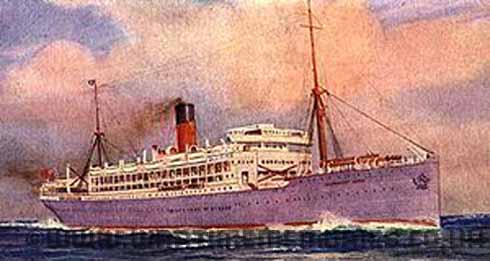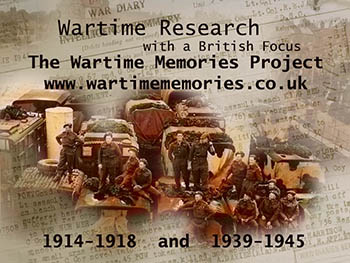2nd Mar 1916 12th Btn KOYLI sail from Port Said 12th Btn Kings Oown Yorkshire Light Infantry leave Port Said on the 2nd of March 1916 onboard the LLandovery Castle.
8th Mar 1916 12th KOYLI arrive at Marseille 12th KOYLI arrive at Marseille at 10 am on the 8th of March onboard the LLandovery Castle from Port Said.
9th of July Arrived in Marseille
10th July 1916 From boat to Train
27th June 1918 Hospital ship 
HMHS Llandovery Castle
HMHS Llandovery Castle, built in 1914 in Glasgow as RMS Llandovery Castle for the Union-Castle Line, was one of five Canadian hospital ships that served in the First World War. On a voyage from Halifax, Nova Scotia to Liverpool, England, the ship was torpedoed off southern Ireland on 27 June 1918 with the loss of 234 lives, and only 24 survivors. In terms of the number of dead, the sinking was the most significant Canadian naval disaster of the war. (The Royal Canadian Navy had a seven-vessel naval force during the war.) The incident became renowned internationally as one of the war’s worst atrocities. After the war, the case of the Llandovery Castle was one of six British cases presented at the Leipzig trials.
Llandovery Castle was one of pair of ships (her sister ship was SS Llanstephan Castle) built for the Union Castle Line, following the companies acquisition by the Royal Mail Line in 1912. The ship was built by Barclay, Curle & Co. in Glasgow, launched on 3 September 1913, and completed in January 1914. Initially sailing between London and East Africa, from August 1914 she sailed on routes between London and West Africa. She was commissioned as a hospital ship on 26 July 1916, and assigned to the Canadian Forces, equipped with 622 beds and a medical staff of 102.
Sinking of HMHS Llandovery Castle 1918.
Under command of Lt.-Col. Thomas Howard MacDonald of Nova Scotia, the HMHS Llandovery Castle was torpedoed and sunk by SM U-86. Firing at a hospital ship was against international law and standing orders of the Imperial German Navy. The captain of the U-86, Helmut Brümmer-Patzig, sought to destroy the evidence of torpedoing the ship. When the crew took to the lifeboats, U-86, surfaced, ran down all the lifeboats and machine-gunned the survivors remaining in the water and on the lifeboats. Only 24 people in one remaining lifeboat survived.
They were rescued shortly afterwards and testified as to what had happened. Only 6 of the 97 hospital personnel survived. Among those lost were fourteen nursing sisters from Canada, including the Matron Margaret Marjory (Pearl) Fraser from Nova Scotia (daughter of Lieutenant Governor of Nova Scotia Duncan Cameron Fraser).
Sergeant Arthur Knight was on board lifeboat number 5 with the nurses. He reported:
"Our boat was quickly loaded and lowered to the surface of the water. Then the crew of eight men and myself faced the difficulty of getting free from the ropes holding us to the ship's side. I broke two axes trying to cut ourselves away, but was unsuccessful. With the forward motion and choppy sea the boat all the time was pounding against the ship's side. To save the boat we tried to keep ourselves away by using the oars, and soon every one of the latter were broken. Finally the ropes became loose at the top and we commenced to drift away. We were carried towards the stern of the ship, when suddenly the Poop deck seemed to break away and sink. The suction drew us quickly into the vacuum, the boat tipped over sideways, and every occupant went under".
"Unflinchingly and calmly, as steady and collected as if on parade, without a complaint or a single sign of emotion, our fourteen devoted nursing sisters faced the terrible ordeal of certain death--only a matter of minutes--as our lifeboat neared that mad whirlpool of waters where all human power was helpless.I estimate we were together in the boat about eight minutes. In that whole time I did not hear a complaint or murmur from one of the sisters. There was not a cry for help or any outward evidence of fear. In the entire time I overheard only one remark when the matron, Nursing Matron Margaret Marjory Fraser, turned to me as we drifted helplessly towards the stern of the ship and asked:"Sergeant, do you think there is any hope for us?""I replied, 'No,' seeing myself our helplessness without oars and the sinking condition of the stern of the ship. A few seconds later we were drawn into the whirlpool of the submerged afterdeck, and the last I saw of the nursing sisters was as they were thrown over the side of the boat. All were wearing lifebelts, and of the fourteen two were in their nightdress, the others in uniform. It was doubtful if any of them came to the surface again, although I myself sank and came up three times, finally clinging to a piece of wreckage and being eventually picked up by the captain's boat."
The 24 remaining in the only surviving lifeboat were rescued by HMS Lysander. Afterward, HMS Morea steamed through the wreckage. Captain Kenneth Cummins recalled the horror of coming across the nurses' floating corpses. "We were in the Bristol Channel, quite well out to sea, and suddenly we began going through corpses. The Germans had sunk a British hospital ship, the Llandovery Castle, and we were sailing through floating bodies. We were not allowed to stop - we just had to go straight through. It was quite horrific, and my reaction was to vomit over the edge. It was something we could never have imagined ... particularly the nurses, seeing these bodies of women and nurses, floating in the ocean, having been there some time. Huge aprons and skirts in billows, which looked almost like sails because they dried in the hot sun."
The trial.
After the war, in 1921, the captain of U-86, Lieutenant Helmut Patzig, and two of his lieutenants, Ludwig Dithmar and John Boldt, were arraigned for trial in Germany on war crimes. The case became famous as one of the "Leipzig trials". Patzig left the country and avoided extradition and though Dithmar and Boldt were convicted and sentenced to four years in prison, they both escaped. At the Court of Appeal, both lieutenants were acquitted on the grounds that the captain was solely responsible.
John Doran
If you can provide any additional information, please add it here.





